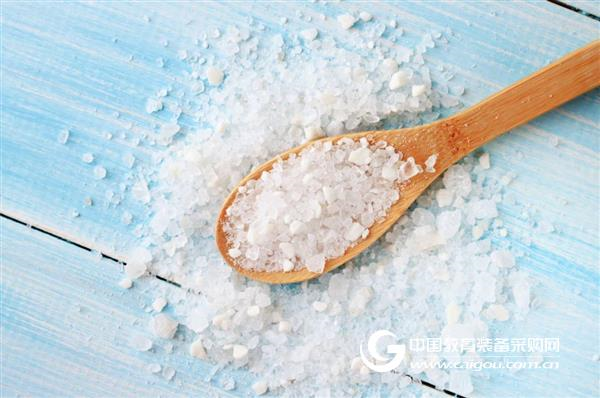New study: high salt diet may increase the risk of type 1 and type 2 diabetes
Guide
A new study suggests that sodium intake through salt may increase the risk of type 2 diabetes and occult autoimmune diabetes (LADA) in adults.

A new study suggests that sodium intake through salt may increase the risk of type 2 diabetes and occult autoimmune diabetes (LADA) in adults.
According to the Centers for Disease Control and Prevention (CDC), diabetes affects more than 29 million people in the United States. Type 2 diabetes accounts for 95% of all confirmed cases, and is more common in middle-aged and elderly people. LADA is a subtype of type 1 diabetes, which is the same as the autoimmune pathogenesis of type 1 diabetes. The special feature is that the islet cells undergo a slow progression of immune damage, and insulin therapy is not needed in the early stage after diagnosis.
Dr. Bahareh Rasouli of the Institute of Environmental Medicine at the Karolinska Institute of Medicine in Stockholm, Sweden, collaborated with researchers from other Swedish and Finnish institutions to conduct a new study to assess the effects of sodium intake on type 2 diabetes and LADA risk. . The researchers published their findings at the annual meeting of the European Association for Diabetes Research in Lisbon, Portugal.
Every additional gram of sodium increases the risk of diabetes
Existing research has shown that our daily intake of sodium through salt may significantly increase the risk of developing type 2 diabetes. The team explained that this may be because sodium has an effect on insulin resistance, and because excessive salt can cause high blood pressure and weight gain. But so far, no studies have evaluated the effect of sodium intake on LADA risk.
"Considering the autoimmune components of LADA," Dr. Rasouli said, "we suspect that a high-salt diet can accelerate autoimmunity and play a role in the pathogenesis of LADA."
Dr. Rasouli and his colleagues analyzed epidemiological data on LADA and type 2 diabetes risk factors, a large Swedish cohort study. The team investigated data from 355 patients diagnosed with LADA and 1,136 patients with type 2 diabetes and compared the results with 1379 in the health group.
The questionnaire collected daily dietary information from participants. These data allow the team to calculate the calorie, nutrient and sodium intake of each participant per day. Dr. Rasouli and his colleagues also considered the genetic risk factors for diabetes. According to the genetic map, participants were classified into “high risk†and “other†categories. In addition, the researchers adjusted for confounding variables including age, gender, body mass index (BMI), smoking, physical activity levels, and alcohol intake.
The researchers found that an extra gram of sodium (or 2.5 grams of salt) per day was associated with a 43% increased risk of developing type 2 diabetes. For LADA, for every gram of sodium added, it increases the risk of disease by 73%.
Participants were also divided into three groups based on the amount of sodium intake. Includes "low intake" (daily sodium content below 2.4 grams or up to 6 grams salt), "medium intake" (2.4 to 3.15 grams of sodium, or up to 7.9 grams of salt), "high intake" (daily sodium) The content exceeds 3.15 g and the salt content exceeds 7.9 g).
In high-intake populations, the risk of developing type 2 diabetes is 58% higher than in low-intakers. People with high genetic risk of diabetes have a high daily intake, almost four times the daily low intake.
The interaction between genetics and diet
These studies "confirmed the relationship between sodium intake and type 2 diabetes." They added, "High sodium intake may be a risk factor for LADA, especially in high-risk HLA (human leukocyte antigen) genotypes. Among the carriers." These people have already carried a serious genetic risk of diabetes.
Dr. Rasouli told us that this study has one major limitation: since the research is based on a questionnaire, participants may forget the relevant details and lead to recall bias. This bias may result in underestimation of the effect of sodium intake on the risk of type 2 diabetes and LADA.
Researchers will also delve into the interaction between diabetes's diet and genetic factors, which may further reveal ways to prevent disease. Dr. Rasouli also said that they intend to test the effect of reducing salt intake on preventing both types of diabetes.
Shanghai Chuangsai Technology has excellent performance, interleukin cytokines, fetal bovine serum, electrophoresis equipment scientific instruments, raw material drug standards, chemical reagents, cell culture consumables, Shanghai Chuangsai, mass products special promotions, welcome to inquire!
2 Tier 201 Stainless Steel Dish Rack
2 Tier 201 Stainless Steel Dish Rack,2 Tier Dish Rack,Standing Steel Dish Rack,Steel Frame Dish Rack
Jiangmen Jianghai Jianshang Houseware Co.,LTD. , https://www.jm-jianshang.com